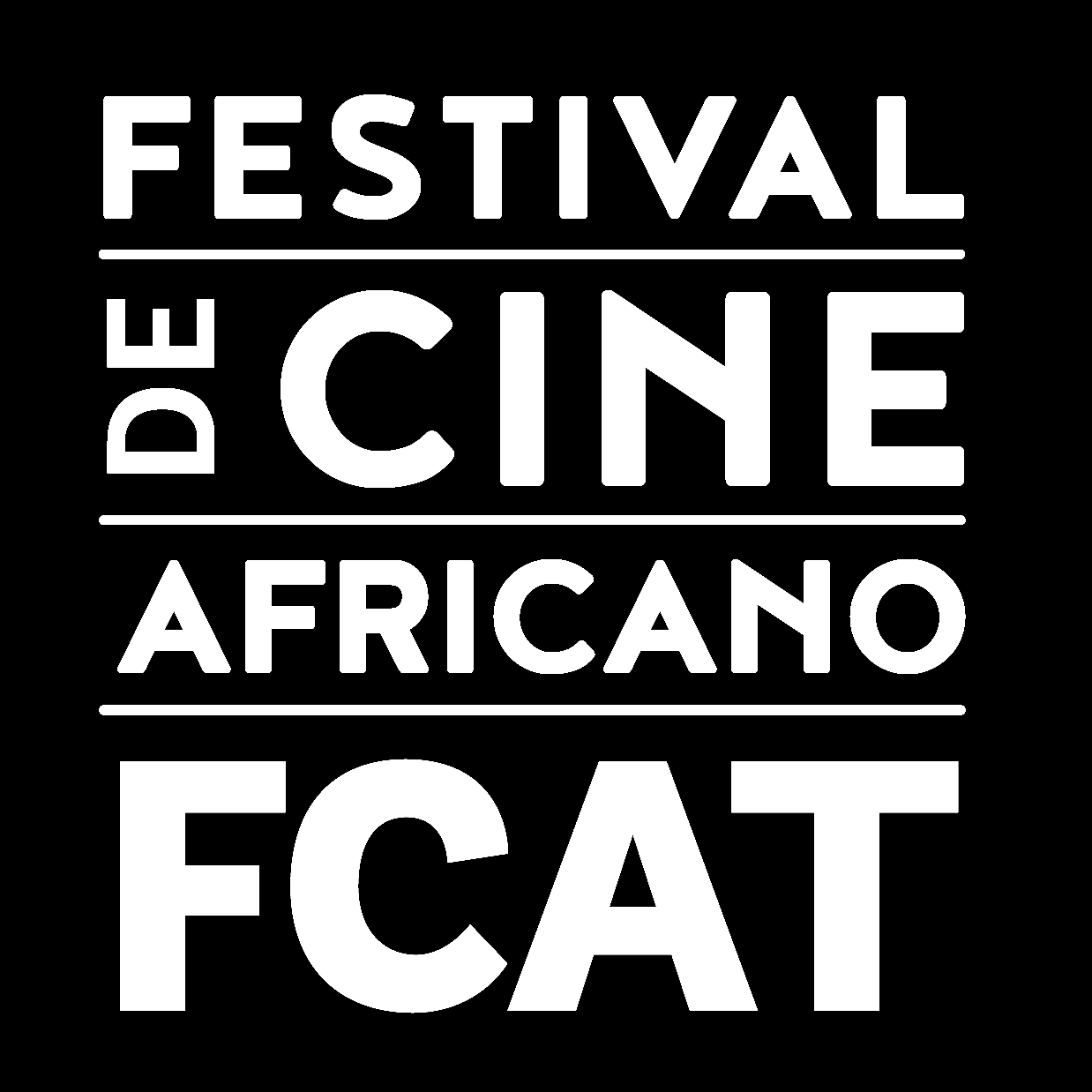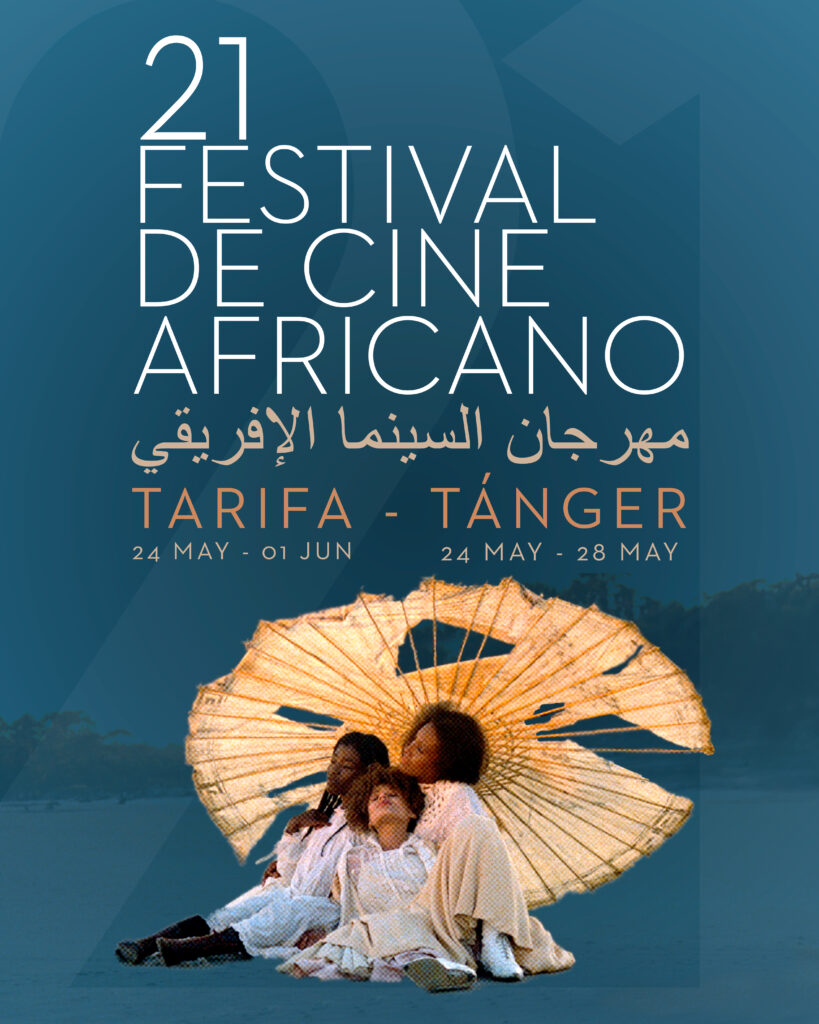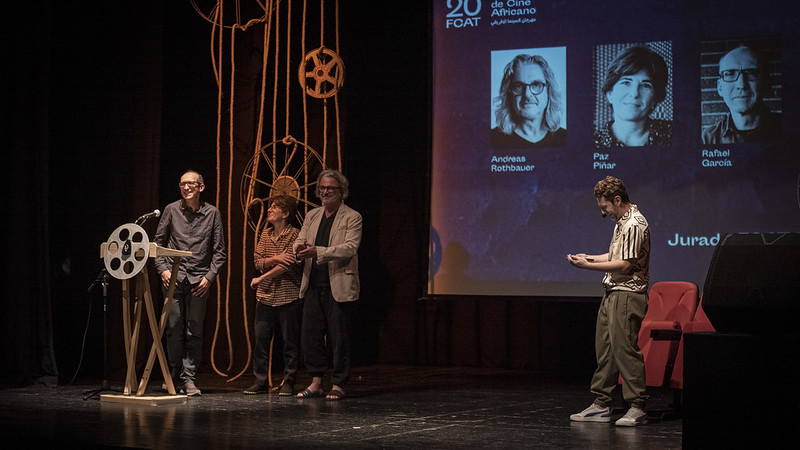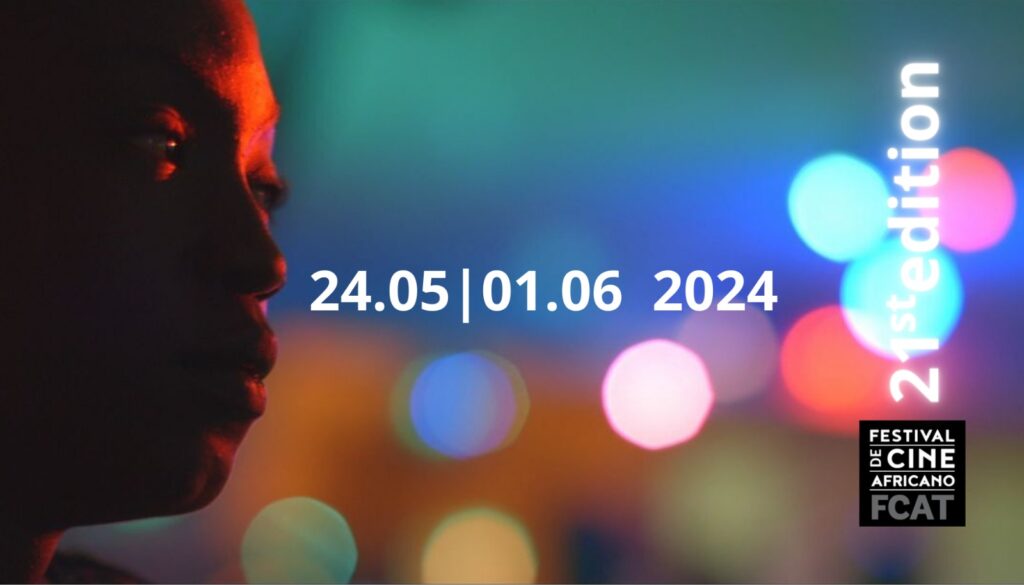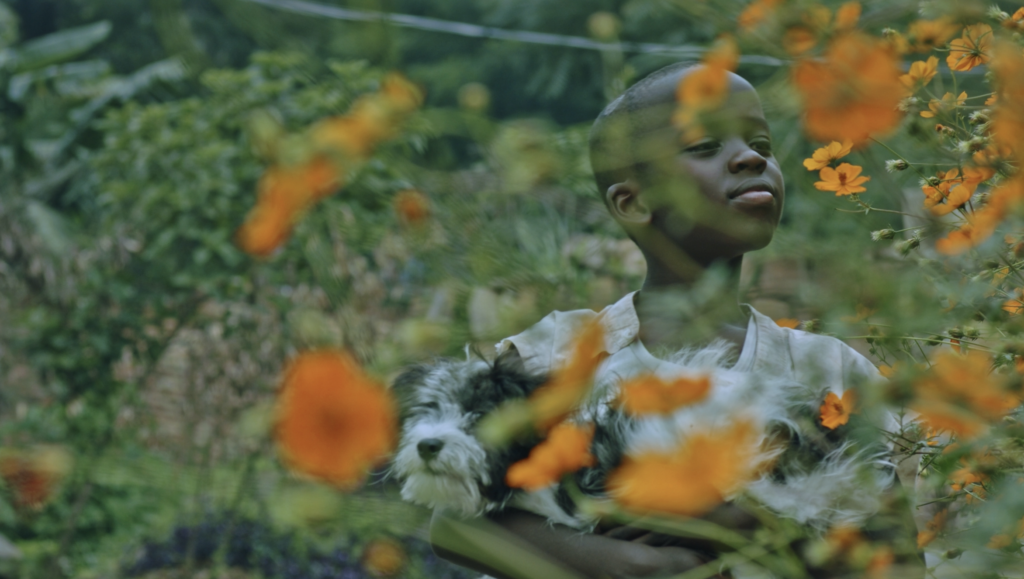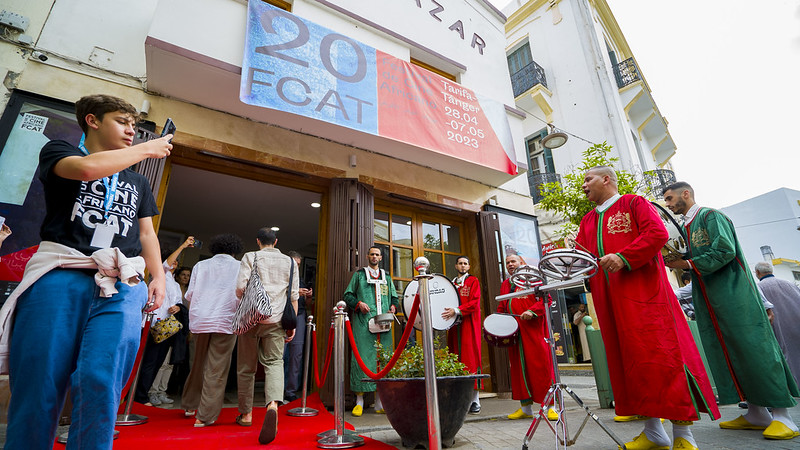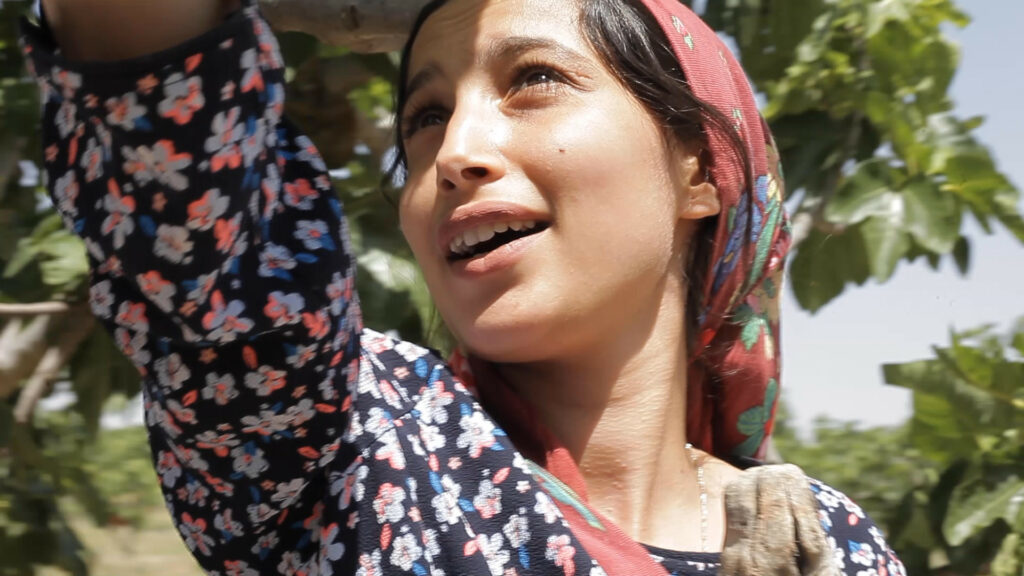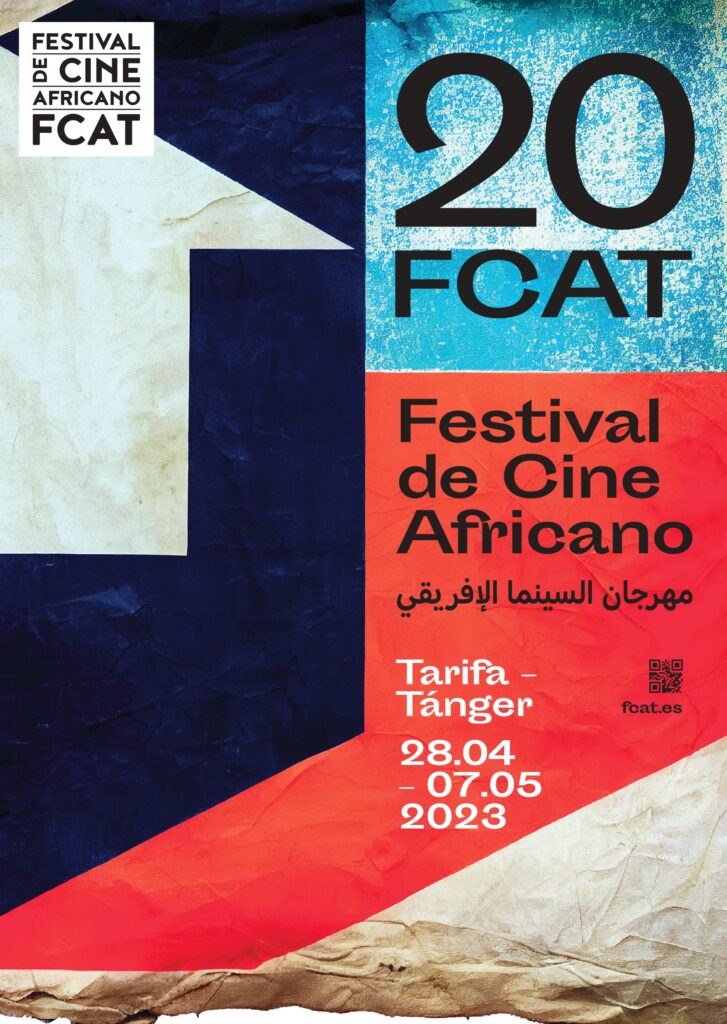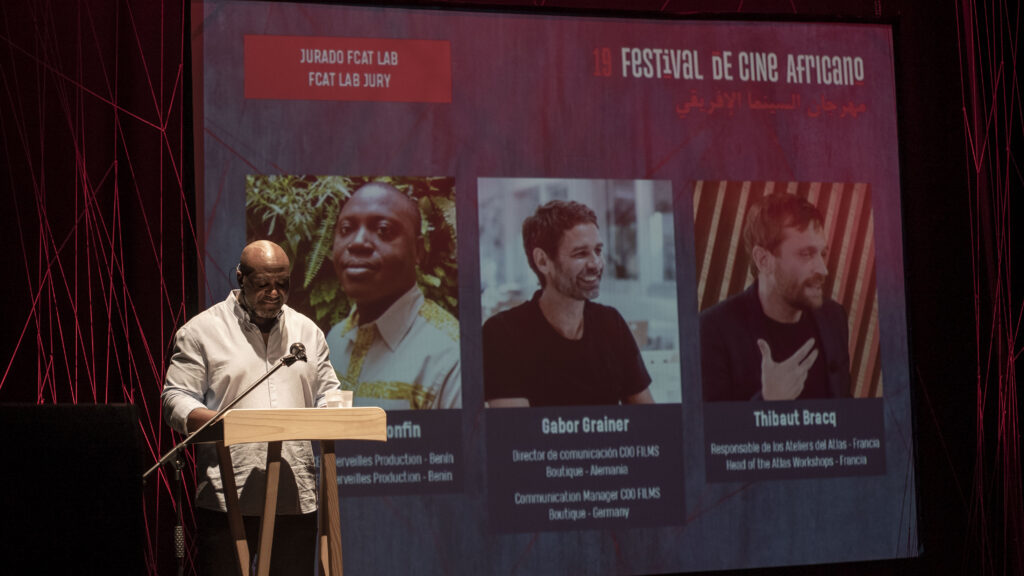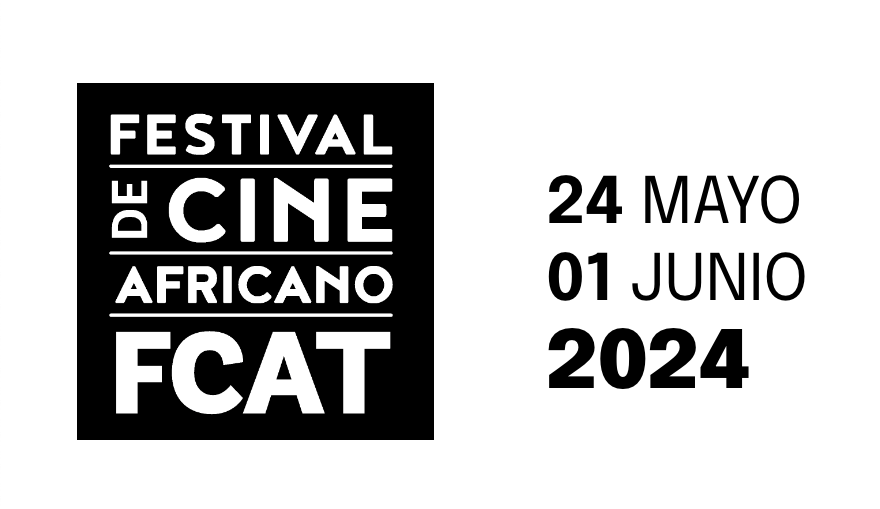The Long View and Africa in Brief will give us a feel for contemporary African cinema with documentaries and fiction from approximately 20 countries.
A dozen women film directors from the African continent coming from sub-Saharan Africa, Maghreb and Afro-descendants from different parts of Europe will compete in The Long View and Africa in Brief, the two official sections of the 21st African Film Festival of Tarifa – Tangier-FCAT. The event will be held on both shores of the Strait of Gibraltar, in addition to several extensions, between 24th May and 1st June.
With twelve films in this edition, the feature film competition section, The Long View, will have six women behind the camera, exactly half of them, an unusual number in any festival not exclusively dedicated to films made by women. Filmmakers from Morocco, French Algeria, Cameroon and Rwanda will be present on the screens of the African film festival with the greatest trajectory and projection in Spanish-speaking countries.
“The special focus on contemporary cinema made by women directors is not only intentional in FCAT 2024’s programming, but also reflects a reality in which women filmmakers in Africa are empowering themselves, asserting themselves and beginning to conquer major film festivals,” explains Marion Berger, festival programmer. “With great simplicity and without any reservations, these women highlight the courage, resilience and determination of women citizens who are no longer remaining silent or submissive.” Because of this freedom and honesty, African women directors are probably those who are “renewing” today’s cinematic forms the most, according to the programmer.
Among the Maghrebi directors, the French-Algerian Lina Soualem, winner of the Audience Award at FCAT 2021 with her previous documentary, Leur Algérie, and Moroccans Leïla Kilani and Asmae El Moudir stand out. Soualem is participating with the documentary Bye, Bye Tiberiade, which premiered in Venice and was awarded at several festivals, including the BFI in London.
The story revolves around her mother, the Palestinian actress Hiam Abbas, known internationally for her role in the award-winning series Succession. The documentary is a portrait of her mother, of her exile from Palestine to Paris to become an actress, but also of her grandmother and great-grandmother, who also lived in exile. Lina questions her identity and her ability to relate to this genealogy of strong women.
As for Leïla Kilani’s new and long-awaited fictional film, Indivision, the director of Sur la Planche (2012) will premiere this scathing, ambitious and formally groundbreaking work in Spain. It is a story that revolves around two opposing worlds, speaking of ecology, class struggle, the devastating ultra-capitalism of real estate developers and a new female generation in Morocco that feels suffocated. For her part, Asmae El Moudir brings to FCAT the documentary The Mother of All Lies, with which she won the award for Best Director in the Un Certain Regard section at Cannes, as well as the Golden Eye for Best Documentary for her “original, fascinating, corrosive and moving” look at a past -her own-full of questions. In Casablanca, the young filmmaker attempts to unravel the lies that run in her family. Using a model of her childhood neighborhood and figurines of each of her relatives, she recreates her own story.
Cannes 2023 also saw the documentary Mambar Pierrette by Cameroonian Rosine Mbakam, who weaves a kaleidoscopic portrait of a dressmaker who takes control of her own destiny through her work and her workshop, opening a window to an entire community. This is the first fictional film by the director, who won the FCAT 2021 Best Documentary Award for Les prières de Delphine. Also from Cameroon is the director Cyrielle Raingou, who has signed the documentary Le Spectre de Boko Haram. The film focuses on three children who go to school in the village of Kolofata, bordering Nigeria, under the threat of Boko Haram. The film examines the traumas with which children must grow up, the specter that surrounds them and the violence that can be expected of them.
Also arriving at FCAT from Rwanda is The brideby Myriam Birara, which received a special mention at the Berlinale. This debut feature addresses, in a subtle, minimalist way, the aftermath of the genocide against the Tutsis in a story about forced marriages.
With a total of six documentaries and six fiction films, The Long View will also screen films by directors from Namibia -a cinematography not often seen at FCAT-, Madagascar, the Central African Republic and Nigeria.
Among the directors competing in the The Long View section of this 21st edition of the African Film Festival-FCAT, Luck Razanajoana, from Madagascar, winner of the FCAT LAB 2023 Award with Disco Áfrika, stands out. This story of a young man who decides to return to his village to investigate the mysterious death of his father was the first participation of a Malagasy film by a local director in a festival like Berlin. The Central African Republic will be represented by the film Le Fardeau by Elvis Sabin, whose documentary Makongo won the AECID Award at FCAT 2021. The director’s second film depicts a couple suffering from AIDS and hiding in a very religious society that sees the disease as a divine curse.
Nigeria’s Mami Wata, afantasy film directed by C. J. Obasi in his most ambitious and risky venture to date, premiered at the Sundance Film Festival and will be another FCAT premiere in Spain. Through the use of fable and stunning black-and-white imagery, the story moves through weighty political, philosophical and theological ideas “and creates a film that is both classic and futuristic,” according to The Hollywood Reporter.
A film from Namibia, a country that has so far produced only about 20 feature films, will compete at FCAT for the first time. The thriller Under the hanging tree is written, directed and produced by Perivi Katjavivi, a young and promising Namibian filmmaker who revives the Namibian drama of the genocide of the Herero people at the beginning of the century by the Germans. Made with creative freedom, it is a profound reflection on memory in which each shot touches on the traces of the trauma of colonialism that persist in the Herero people.
Lusophone Africa will be represented by the Cape Verdean film Omi Nobu by Carlos Yuri Ceuninck, winner of the Best Documentary Award at Fespaco 2023, the main film festival on the African continent. With images of dazzling beauty set on the island of São Nicolau in addition to moving music, this is the portrait of a people clinging to the mountain, an absolute end of the world and a voice that reminds us that there were many storytellers and that there are many important stories still to be transmitted.
Finally, the Algerian documentary Zinet, Alger, Le Bonheur pays tribute to the film Tahia Ya Didou, considered one of the most groundbreaking in the history of Algerian cinema, proposing an image of Algiers far from the exoticism of postcards. The film is an intimate portrait of the relationship between Mohamed Latrèche, the director, and this film and its author, Mohamed Zinet.
